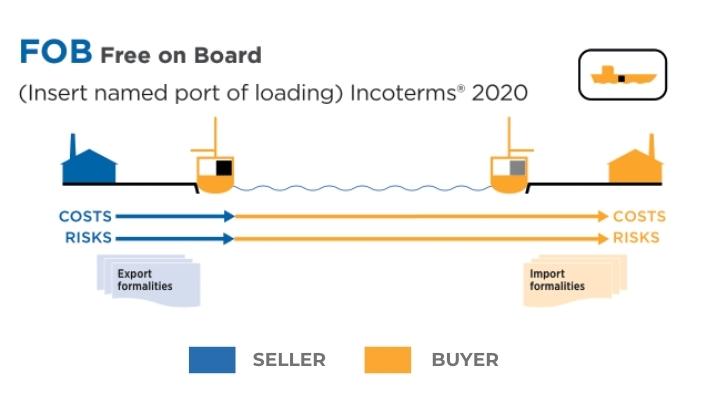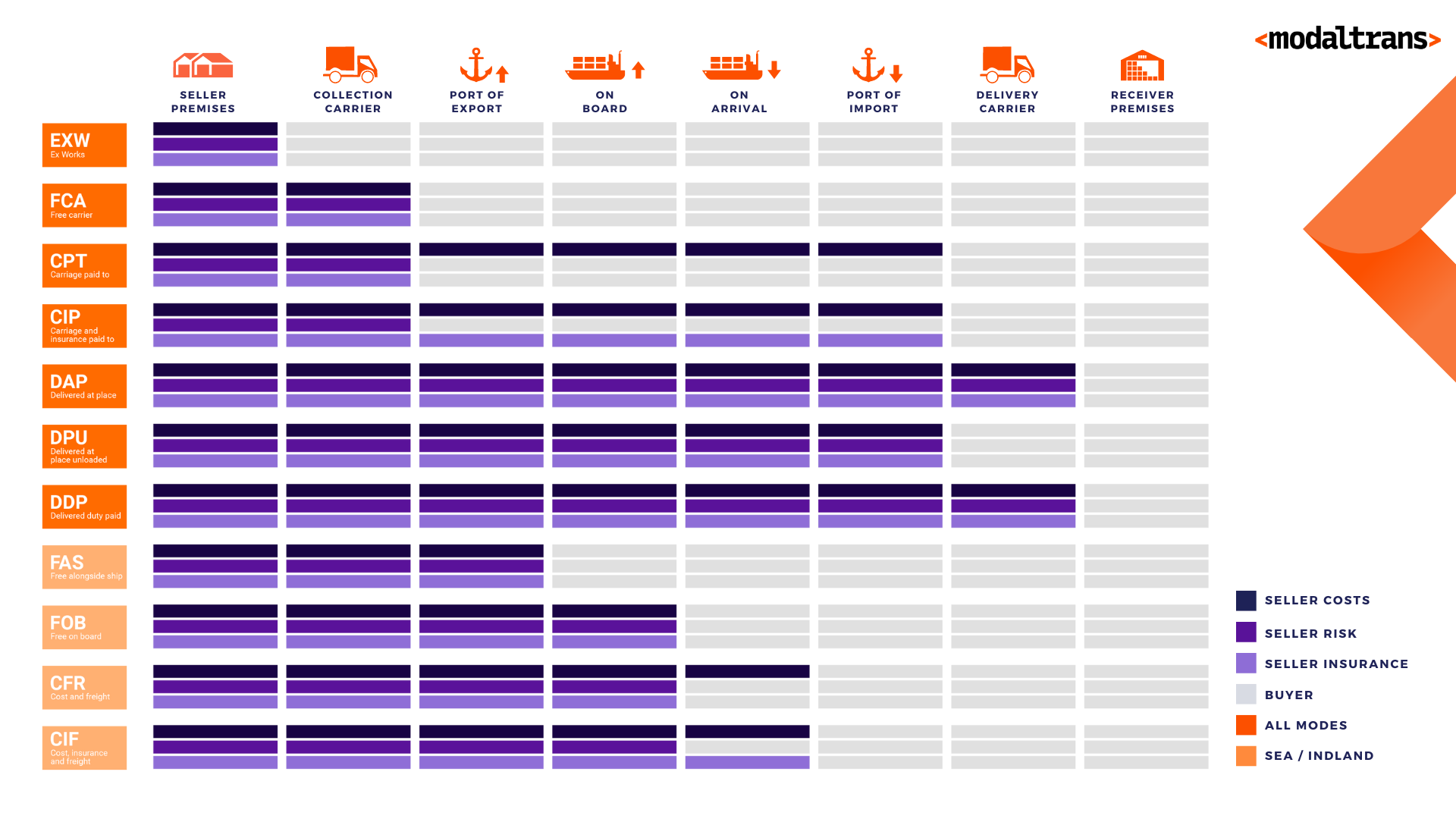Unveiling the Essence of FOB Shipping: Meaning, Incoterms, and Pricing in 2024
Introduction
In the intricate realm of international trade, efficient logistics are paramount. Navigating the complexities of cross-border shipments demands a clear understanding of industry-standard practices and terminologies. Among these, the concept of "FOB" (Free On Board) emerges as a pivotal incoterm, governing the responsibilities and liabilities of buyers and sellers throughout the shipping process. This comprehensive guide delves into the nuances of FOB shipping, elucidating its meaning, contrasting it with other incoterms, and providing insights into pricing dynamics for 2024.
Demystifying the FOB Shipping Paradigm
The term "FOB" carries profound implications for international trade transactions. At its core, FOB shipping delineates the point at which the risk and responsibility for goods transition from the seller to the buyer. This critical juncture occurs when the cargo is safely loaded onto the designated vessel at the agreed-upon port of origin.
Under an FOB agreement, the seller assumes the costs and obligations associated with delivering the goods to the port, including export clearance, packaging, and loading onto the ship. Once the cargo crosses the rail of the vessel, the buyer assumes control, bearing the subsequent costs and risks associated with transportation, insurance, and import formalities.
Decoding the Responsibilities: Seller's Obligations
When entering into an FOB shipping contract, the seller undertakes a well-defined set of responsibilities:
Export Packaging and Preparation
The seller must ensure that the goods are appropriately packaged and prepared for safe transportation, adhering to industry standards and regulations.
Loading Charges and Delivery to Port
Any expenses incurred during the loading process at the seller's facility, as well as the transportation costs from the warehouse to the designated port of loading, fall under the seller's purview.
Export Duties, Taxes, and Customs Clearance
The seller is accountable for ensuring that all export-related duties, taxes, and customs clearance procedures are properly handled and documented.
Terminal Handling Charges at Origin
The seller bears the responsibility for covering the terminal handling charges at the port of origin, which encompass the costs associated with the movement and storage of goods within the port premises.
Unveiling the Buyer's Responsibilities
On the other side of the equation, the buyer assumes a distinct set of obligations and risks under an FOB shipping agreement:
Freight Charges and Insurance
The buyer is responsible for arranging and paying for the freight charges to transport the goods from the port of loading to the final destination. Additionally, while not mandatory, the buyer may opt to secure insurance coverage for the shipment, bearing the associated costs.
Destination Terminal Handling Charges
Upon arrival at the port of destination, the buyer is liable for paying the terminal handling charges, which cover the costs of unloading, handling, and temporary storage of the goods within the port premises.
Delivery to Final Destination
Once the cargo is unloaded from the vessel, the buyer assumes responsibility for arranging and financing the final leg of transportation from the port to the intended delivery location.
Import Duties, Taxes, and Customs Clearance
The buyer is obligated to handle and pay for all import-related duties, taxes, and customs clearance procedures in the destination country, including any potential penalties, dunnage charges, or delays.
Advantages of FOB Shipping for Buyers
The widespread popularity of FOB shipping among buyers can be attributed to the numerous advantages it offers:
Control Over Logistics and Shipping Costs
By assuming responsibility for transportation from the port of loading, buyers gain greater control over the logistics and shipping costs, enabling them to select their preferred freight forwarder and negotiate favorable rates.
Streamlined Communication and Coordination
With a single logistics provider overseeing the entire transportation process, buyers can minimize potential miscommunications and enjoy a more streamlined coordination experience.
Cost-Effectiveness
FOB shipping often presents a cost-effective option for buyers, as they can leverage their negotiating power and industry connections to secure competitive shipping rates.
Enhanced Shipment Visibility and Control
By retaining control over the shipment from the point of loading, buyers can better monitor and manage the successful outcome of their shipment, minimizing potential disruptions or delays.
Disadvantages of FOB Shipping for Buyers
While the advantages of FOB shipping are compelling, it's essential to acknowledge potential drawbacks:
Increased Coordination Efforts
For buyers new to international trade or those accustomed to relying on suppliers for freight arrangements, the added step of coordinating logistics can initially seem more complex.
Potential Miscommunication Risks
Effective communication between the buyer, seller, and logistics provider is crucial to mitigate the risk of miscommunications or misunderstandings, which could lead to delays or additional costs.
When to Utilize an FOB Agreement
FOB shipping is a viable agreement for most bulk cargo shipments transported via sea or inland waterways. However, it's important to note that the International Chamber of Commerce (ICC) specifies that FOB is applicable exclusively for sea and inland waterway shipments. For shipments involving other modes of transportation, alternative incoterms, such as FCA (Free Carrier), may be more suitable.
Buyers are encouraged to consider FOB incoterms when they wish to leverage the services of a reputable freight forwarder to organize their shipments. By doing so, they can benefit from competitive unit pricing while allowing the seller to maintain partial responsibility for the freight until it departs their country.
Pricing Dynamics: FOB Rates and Timeframes from China
Given the prevalence of FOB agreements in international trade, it's imperative to understand the pricing dynamics and approximate rates associated with shipping from China, a global manufacturing hub. The following table provides estimated rates and timeframes for shipping standard containers via FOB from major Chinese ports:
|
Destination |
20' Container |
40' Container |
40' HQ Container |
Approximate Timeframe |
|
From Shanghai Port to: |
||||
|
Long Beach, United States |
$2,300 - $3,000 |
$3,000 - $3,500 |
$3,000 - $3,500 |
14-27 days |
|
New York, United States |
$2,800 - $3,200 |
$3,500 - $4,000 |
$3,500 - $4,000 |
25-30 days |
|
Miami, United States |
$3,000 - $3,500 |
$3,500 - $4,000 |
$3,500 - $4,000 |
28-36 days |
|
Hamburg, Germany |
$800 - $1,500 |
$1,500 - $2,000 |
$1,600 - $2,100 |
30-47 days |
|
Antwerp, Belgium |
$1,000 - $1,500 |
$1,500 - $2,000 |
$1,500 - $2,200 |
29-43 days |
|
Felixstowe, United Kingdom |
$1,000 - $1,500 |
$1,700 - $2,300 |
$1,700 - $2,300 |
19-32 days |
|
Sydney, Australia |
$1,200 - $1,700 |
$2,200 - $2,700 |
$2,200 - $2,700 |
16-32 days |
|
Brisbane, Australia |
$1,200 - $1,700 |
$2,100 - $2,600 |
$2,200 - $2,700 |
15-29 days |
|
From Yantian (Shenzhen) Port to: |
||||
|
Long Beach, United States |
$2,300 - $3,000 |
$3,000 - $3,500 |
$3,000 - $3,500 |
15-29 days |
|
New York, United States |
$2,800 - $3,200 |
$3,500 - $4,000 |
$3,500 - $4,000 |
27-33 days |
|
Miami, United States |
$2,900 - $3,400 |
$3,700 - $4,200 |
$3,700 - $4,200 |
30-37 days |
|
Hamburg, Germany |
$1,000 - $1,500 |
$1,700 - $2,300 |
$1,700 - $2,300 |
28-47 days |
|
Antwerp, Belgium |
$1,000 - $1,500 |
$1,700 - $2,300 |
$1,700 - $2,300 |
29-43 days |
|
Felixstowe, United Kingdom |
$1,100 - $1,600 |
$1,900 - $2,400 |
$1,900 - $2,400 |
20-24 days |
|
Sydney, Australia |
$1,200 - $1,700 |
$2,400 - $2,900 |
$2,500 - $3,000 |
13-29 days |
|
Brisbane, Australia |
$1,200 - $1,700 |
$2,400 - $2,900 |
$2,500 - $3,000 |
11-29 days |
Please note that these rates are approximate and subject to change. For accurate and up-to-date pricing information, it is recommended to request a custom shipping quote from a reputable freight forwarder or logistics provider.
The Shipping Process: How FOB Works in China
For those new to purchasing under FOB terms from China, understanding the overall shipping process and what to expect can be beneficial. Here's a step-by-step overview:
Requesting a Product Quotation
Chinese suppliers typically provide product quotations under FOB incoterms. The quotation will typically include the unit price, the agreed-upon incoterm (FOB), and the specific shipping point (typically a Chinese city or port).
Requesting a Shipping Quotation
To obtain a shipping quotation from a freight forwarder or third-party logistics company, you will need to provide the following information:
- Ship from address (the supplier's address)
- Ship to address (the final destination)
- Pickup and drop-off service requirements
- Type of cargo (for documentation and compliance purposes)
- Dimensions and weight of the cargo
With this information, the logistics provider can offer an accurate quotation, typically within a few hours.
Confirming the Shipment
Once you are satisfied with the shipping quotation, inform your logistics company that you wish to proceed with their services. They will typically send you documentation and an agreement to sign, confirming the shipment details.
Shipping Day
On the scheduled shipping day, the seller's warehouse and your logistics company will arrange for a truck to collect the cargo. If shipping a full container load (FCL), the truck will carry the container to the seller's warehouse for direct loading. If shipping less than a container load (LCL), your cargo will be consolidated with other consignments at a warehouse before loading onto the container.
Once the cargo is loaded onto the forwarder's truck, it begins its journey to the port, where the exporting and loading process onto the vessel takes place.
Frequently Asked Questions About FOB Shipping
What is FOB pricing?
FOB pricing includes the cost of goods, delivery to the port of origin, and all export requirements. The buyer assumes the risk once the cargo is loaded onto the ship. FOB pricing will always specify a seaport where the seller agrees to export, with the city name following "FOB."
Who pays the freight on FOB shipments?
Under FOB incoterms, the buyer is responsible for paying the freight costs to ship the products from the port of loading to the final destination.
What is the difference between FOB and CIF?
The significant difference between FOB and CIF (Cost, Insurance, and Freight) is that under CIF, the seller is responsible for the cost of shipping and insurance, unlike an FOB agreement where these are the buyer's responsibilities. CIF is typically more expensive for the buyer.
Is insurance required for FOB shipments?
While not mandatory, it is generally recommended that either the buyer or the seller obtain freight insurance for FOB shipments. The responsibility for arranging insurance is often negotiated before confirming the sale.
Conclusion
In the ever-evolving landscape of international trade, the FOB incoterm stands as a cornerstone, facilitating efficient and transparent transactions between buyers and sellers. By understanding the intricacies of FOB shipping, including its meaning, responsibilities, advantages, disadvantages, and pricing dynamics, businesses can navigate the complexities of cross-border logistics with confidence.
As the world becomes increasingly interconnected, the importance of streamlined supply chains and seamless trade operations cannot be overstated. Embracing the principles of FOB shipping can empower businesses to optimize their operations, mitigate risks, and unlock new opportunities in the global marketplace.




SHARE